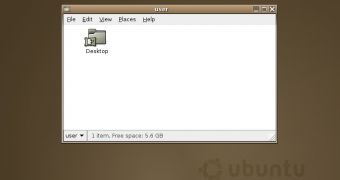Just 11 short years ago, Mark Shuttleworth was announcing the release of Ubuntu 4.10 "The Warty Warthog." It changes the way people were using Linux distribution, and it's still to this day a force in the open source world.
It's hard to believe that 11 years have passed since the launch of Ubuntu 4.10 "The Warty Warthog" and a lot has happened since then. Canonical, the company that builds Ubuntu, has grown quite a lot, it expanded in lots of countries, and it's present on all kind of platforms. It started its life as a desktop flavor, but it's now difficult to turn around and not run into some sort of Ubuntu installation on servers, Raspberry Pis, Macs, phones, and so on.
The new Ubuntu 15.10 (Willy Werewolf) is set to launch in just a couple of days, so the fact that Ubuntu now celebrates 11 years since its initial launch feels like it's rounding up just nicely. Some things have changed in the meantime. The OS is now using a different desktop environment and the support period for intermediary release has decreased to nine months. On the other hand, it's still based on Debian, the LTS versions come with five years of support, and it managed to remain free.
Ubuntu 4.10 "The Warty Warthog" was released on October 20, 2004
Back then it was just another Debian distro with its own selection of apps, but Mark had a vision. It would have been hard to tell from just one announcement that it's going to be big, but this is how things usually happen.
"The warm-hearted Warthogs of the Warty Team are proud to present the very first release of Ubuntu! Ubuntu is a new Linux distribution that brings together the extraordinary breadth of Debian with a fast and easy install, regular releases (every six months), a tight selection of excellent packages installed by default and a commitment to security updates with 18 months of security and technical support for every release," wrote Mark.
Ubuntu 15.10 (Willy Werewolf) is set to launch on October 22.

 14 DAY TRIAL //
14 DAY TRIAL //